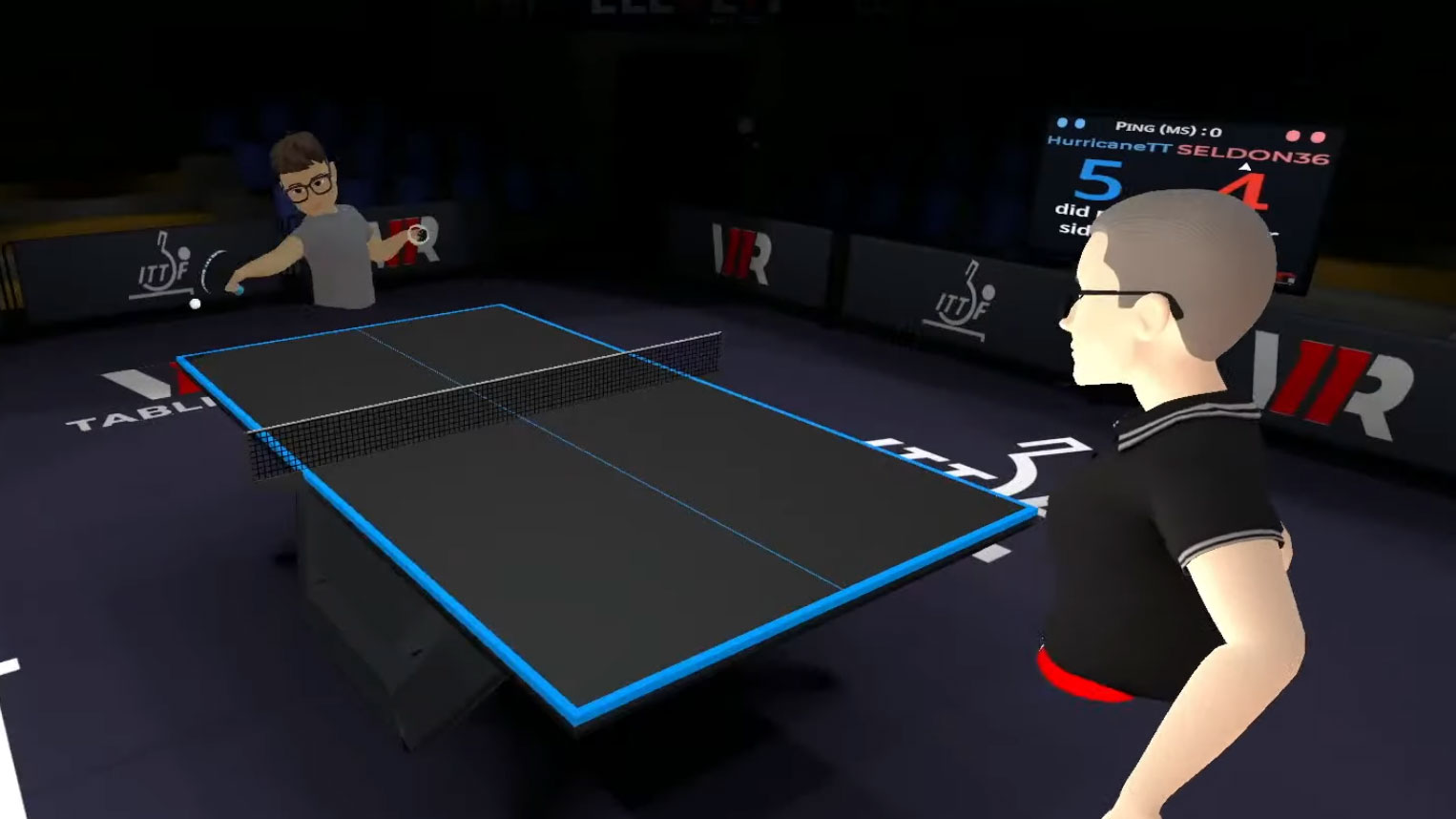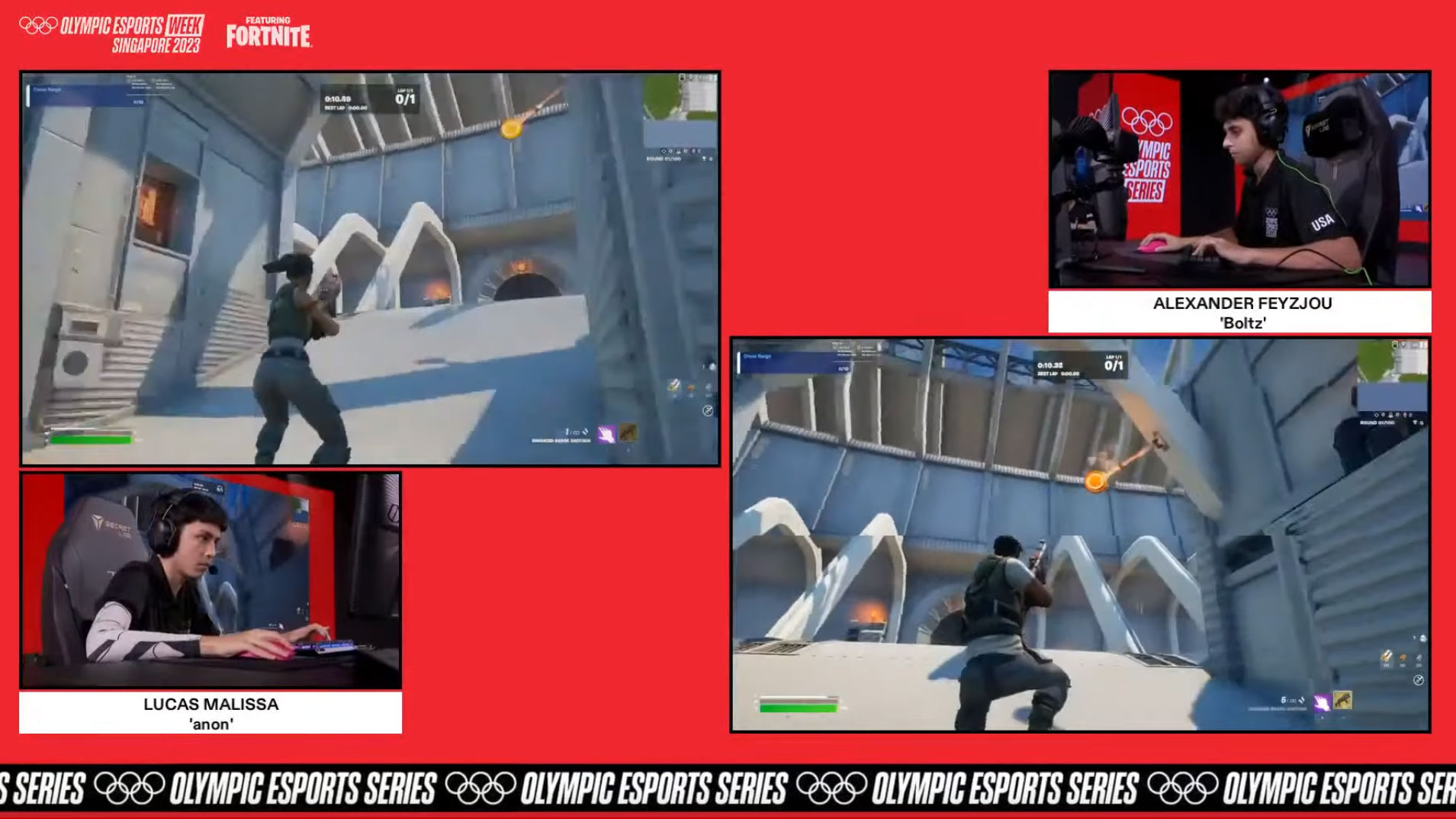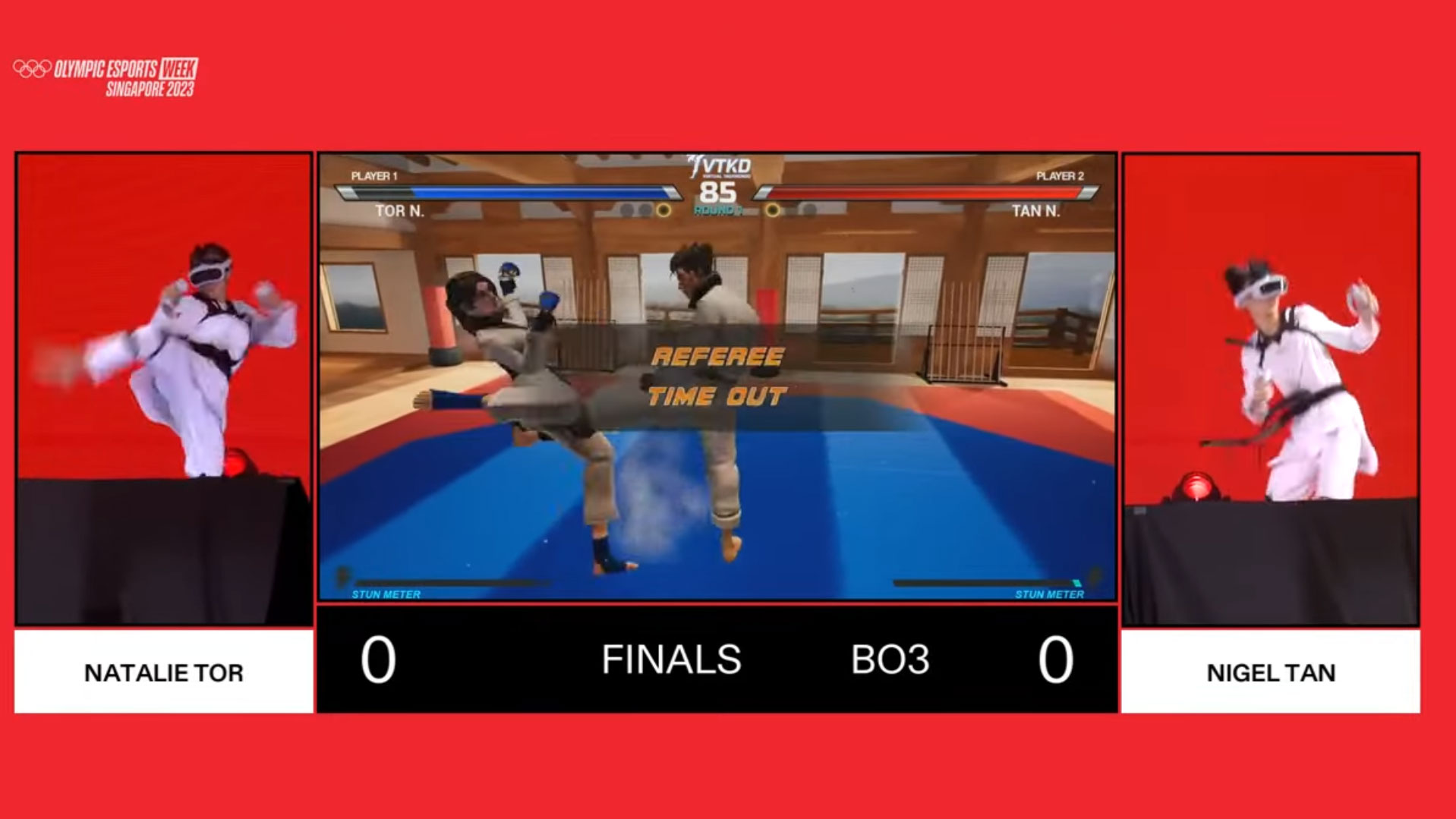
VR Table Tennis is played during the finals of the Olympic Esports Series in Singapore, June 25, 2023. /IOC
VR Table Tennis is played during the finals of the Olympic Esports Series in Singapore, June 25, 2023. /IOC
The Olympic Esports Series (OES) concluded on Sunday in Singapore, with 10 games that demonstrate the International Olympic Committee’s (IOC) vision for the future of esports.
For decades, video game-based esports have been considered by many to be anything but sports. However, the IOC has shown that there is huge potential for video games to become legitimate, healthy and interesting sports with the success of the OES.
“The OES is a high-profile event, with the IOC, the governments of Singapore and China, and other major stakeholders all involved,” said Duan “Candice” Yushuang, a professional esports host from China. She had recently traveled to Singapore to watch some of the OES events.
“It seems that the IOC is really serious about attracting young people to the Olympics,” she added.
The OES featured a variety of games that were different from the popular esports titles that many people are familiar with. Instead of games like League of Legends, Valorant and Overwatch, the OES featured simulations of real-world sports like VR Table Tennis, board games like chess and social games like Just Dance.

Players shoot targets, instead of each other, during the Fortnite finals of the Olympic Esports Series in Singapore, June 25, 2023. /IOC
Players shoot targets, instead of each other, during the Fortnite finals of the Olympic Esports Series in Singapore, June 25, 2023. /IOC
It was also clear that the IOC was intentional in excluding video game titles that promote violence. Another key factor in the IOC’s selection process was availability. If a game requires an expensive console or high-end computer, the number of players will naturally be limited, which is against the IOC’s wish to include as many people as possible.
As a result, the OES was able to showcase a variety of games that were accessible to a wide range of people. This included female player Amandine Morisset dominating the Just Dance stage and 15-year-old Natalie Tor beating two-time Olympic gold medalist Wu Jingyu in Virtual Taekwondo.
The OES has proven its ability to unlock new possibilities for more athletes. However, the inaugural series also exposed some problems with esports, especially when electronic devices cannot accurately catch all the movements of players.
“Some video games still need to be developed further before they can be considered serious competitive sports,” Candice told CGTN Digital.

A “referee timeout” is called during the Virtual Taekwondo grand final as virtual characters behave oddly on the screen at the Olympic Esports Series in Singapore, June 25, 2023. /IOC
A “referee timeout” is called during the Virtual Taekwondo grand final as virtual characters behave oddly on the screen at the Olympic Esports Series in Singapore, June 25, 2023. /IOC
This was especially the case with Virtual Taekwondo, whose finals were interrupted many times by technical issues. The viewers saw virtual characters making absurd poses, sinking into the ground, or simply stopping to respond.
Fortunately, the organizers swiftly fixed all the issues, and the finals were successfully held.
Despite these problems, the OES is a big step for both video games and esports.
Esports were finally acknowledged by the IOC as legitimate sports, and if the current problems can be resolved, esports have the potential to be a great way to spread the Olympic spirit among youngsters.
